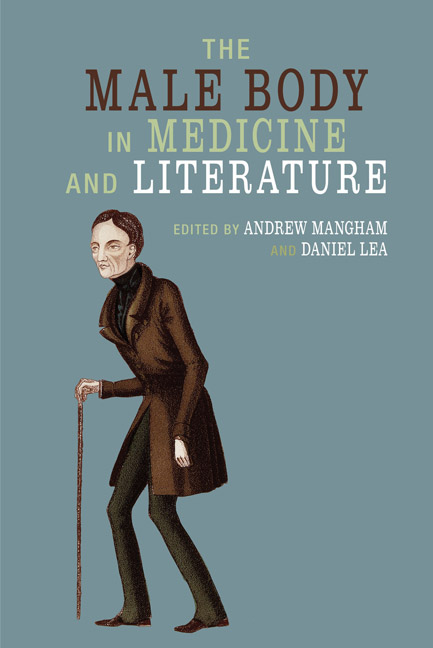
-
- This book is no longer available to purchase from Cambridge Core
- Publisher:
- Liverpool University Press
- Online publication date:
- November 2019
- Print publication year:
- 2018
- Online ISBN:
- 9781786948700
- Subjects:
- Literature, Literary Theory

Contrary to what Simone de Beauvoir famously argued in 1949, men have not lived without knowing the burdens of their sex. Though men may have been elevated to cultural positions of strength and privilege, it has not been without intense scrutiny of their biological functions. Investigations of male potency and the 'ability to perform' have long been mainstays of social, political, and artistic discourse and have often provoked spirited and partisan declarations on what it means to be a man. This interdisciplinary collection considers the tensions that have developed between the historical privilege often ascribed to the male and the vulnerabilities to which his body is prone. Andrew Mangham and Daniel Lea's introduction illustrates how with the dawn of modern medicine during the Renaissance there emerged a complex set of languages for describing the male body not only as a symbol of strength, but as flesh and bone prone to illness, injury and dysfunction. Using a variety of historical and literary approaches, the essays consider the critical ways in which medicine's interactions with literature reveal vital clues about the ways sex, gender, and identity are constructed through treatments of a range of 'pathologies' including deformity, venereal disease, injury, nervousness, and sexual difference. The relationships between male medicine and ideals of potency and masculinity are searchingly explored through a broad range of sources including African American slave fictions, southern gothic, early modern poetry, Victorian literature, and the Modern novel.
 Loading metrics...
Loading metrics...
* Views captured on Cambridge Core between #date#. This data will be updated every 24 hours.
Usage data cannot currently be displayed.